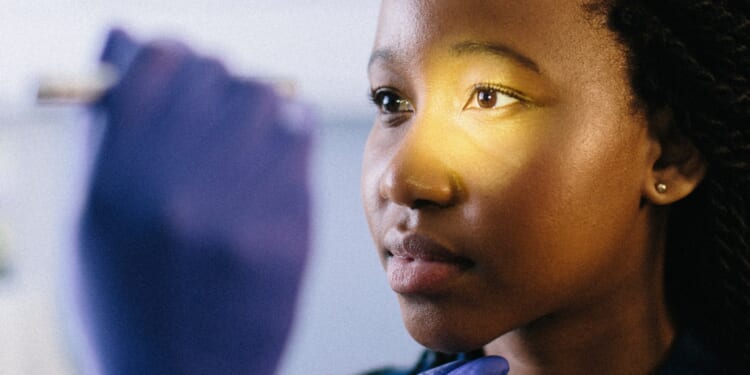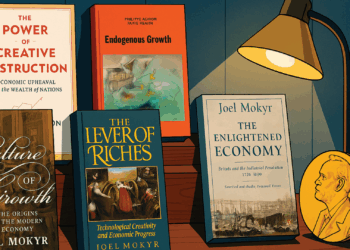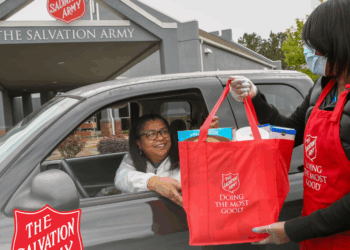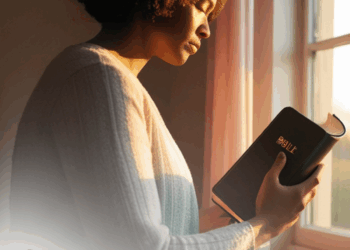LOOSE Women star Brenda Edwards is urging Britain’s ‘aunties’ to step up and help tackle the risk of avoidable sight loss in African-Caribbean communities.
The TV personality revealed glaucoma – a condition that can cause irreversible damage to vision – runs in her family and warned those from an African Caribbean background are up to four times more likely to develop it.
Her call comes after research found 78 per cent of people from these communities said advice from older, respected women – or ‘aunties’ – would influence their health decisions.
Yet despite this, African-Caribbean adults were found to be a third more likely to delay or avoid health appointments, including GP appointments and eye tests, than any other group.
The singer and presenter, who has teamed up with Specsavers as part of its Auntie Army campaign developed with advice from Glaucoma UK, said: “Aunties have been praying, cooking and looking after their communities forever.
“Now it’s time for them to tell their loved ones to get an eye test – because that’s who they will listen to.
“My family has a history of glaucoma so I’m very aware how important eye tests are.
“So please do as your auntie says and book one today, even if you think you can see perfectly fine. I’m not asking now, I’m telling you – pass the message on.”
The survey of 2,000 adults – including 500 from the African-Caribbean community – also revealed 71 per cent feel it’s more important to them that health advice comes from someone with a similar cultural background.
And while many admitted unsolicited ‘auntie advice’ can sometimes be frustrating, 72 per cent said they always take it seriously.
Despite this influence, 19 per cent admitted it had been two years or longer since their last eye check – while one in twenty (six per cent) had never had one at all.
Awareness of glaucoma also remains low, with 44 per cent of respondents not knowing the risks or warning signs.
Ebahi Demi Ejegi, an optometry director at Specsavers Sidcup, added: “Glaucoma can develop slowly over time without obvious symptoms, meaning many don’t realise there’s a problem until irreversible damage to their vision has already been done.
“That’s why regular eye checks are so important – they’re not just about checking your vision, they’re vital to catch conditions like glaucoma early.”
Robyn Asprey, development manager at Glaucoma UK, said: “The number of people living with glaucoma is expected to increase by 44 per cent between 2015 and 2035, with some people at a higher risk of developing the disease.
“People from African-Caribbean communities are up to four times more likely to get glaucoma – and although it’s more common later in life, it can affect people of all ages.
“That is why we need to raise awareness of glaucoma amongst higher risk communities and ensure people can access the eye care they need, in an equitable and timely manner.”
Everything you need to know about glaucoma
Glaucoma is an eye condition where the main nerve, which connects the eye to the brain, becomes damaged.
It’s most common in adults aged 50 and over and can cause vision loss if it’s not diagnosed and treated early.
Glaucoma doesn’t usually have symptoms, so most people don’t realise they have it.
It develops slowly over many years and is usually picked up during routine eye tests.
While the condition usually affects both eyes, it may be worse in just one.
Sometimes glaucoma can develop suddenly and cause symptom such as:
- intense eye pain
- a red eye
- tenderness around the eyes
- seeing rainbow-coloured circles around bright lights
- blurred vision
- feeling sick (nausea) and being sick
- a headache
If you have concerns about your vision, see a GP or optician.
But call 999 or go to A&E if you develop symptoms of glaucoma suddenly.
This is considered a medical emergency that may require immediate treatment.
Make sure you don’t drive yourself to A&E – ask someone to drive you or call 999 and ask for an ambulance.
And bring any medications you take with you.
Source: NHS













